Hello Tessa! Please tell me about you and your earlier experiences in the food sustainability sphere.
Hi, my name is Tessa Tricks and for the past 12 years, I have worked in the realm of sustainable food.
It started with an interest from when I was a teenager and did an internship with a food magazine in Bristol.
Then, at university, I became involved with the Slow Food movement, which was created in part as a response to the opening of McDonalds on the Spanish steps in Rome. The Italian movement stood for good, clean, and fair food.
They invited me to attend a bi-annual conference Terra Madre, which further increased my interest in the link between sustainability, food, and culture. At this conference, people from all around the world came together to discuss food, the impact of industrialisation on the environment and our communities, and much more.
It was eye-opening to learn more about ideas such as food sovereignty and witness the breadth of global and often indigenous food cultures. The event was truly amazing and made me determined to pursue a career in the space.
The fridge at a mini festival to celebrate the 200th Hubbub community fridge launch -the 50th fridge with Co-op funding- at North Kensington Resource Centre on 23 September 2021.
How did you then go on to pursue your career?
After I graduated, I worked for about two years in the restaurant The Ethicurean outside Bristol, which focussed on ethical food that was sourced locally and used largely seasonal ingredients. I also supported with The Ethicurean Cookbook.
In addition, I also worked with the Bristol-based organisation called “Sustainable Food Trust”, set up by Patrick Holden, who is a farmer and food activist and a proponent of ‘True Cost Accounting’: an appreciation of the full social and environmental price of our food.
As working in the restaurant was quite hot, and there is a multitude of facets to explore when it comes to food and sustainability, I pursued a 1-year master’s degree in Anthropology Food, where I got to explore global food issues and better understand the range of jobs in the sector.
Following this, I got an offer to work for seven months in San Francisco. Together with American producers, the project consisted in raising the bar of what sustainability looks like in food.
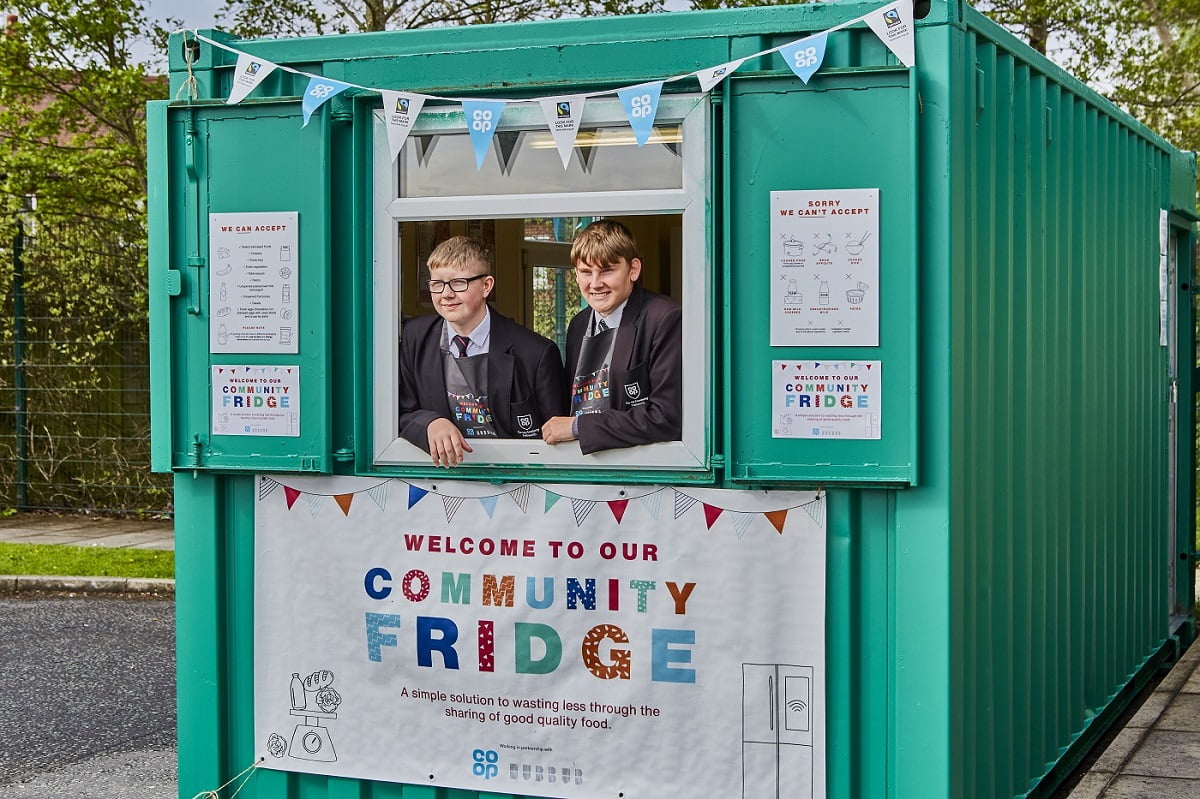 To celebrate the partnership between Co-op and environmental charity, Hubbub. Co-op are adding 100 new community fridges to Hubbub’s network to reach 250 by the end of 2021.
To celebrate the partnership between Co-op and environmental charity, Hubbub. Co-op are adding 100 new community fridges to Hubbub’s network to reach 250 by the end of 2021.
This positive experience propelled the feeling that working in food is truly exciting and an incredible way to explore a range of disciplines from ecology to economics.
I was then looking to move to London and joined a then brand-new start-up charity named Hubbub. Hubbub aims to make environmentalism mainstream and relevant for everyone. During my seven years at Hubbub, I led food programmes and worked with retailers, supermarkets, and other actors to reduce food waste.
Moreover, I worked with community groups, to create local food initiatives such as community kitchens and community fridges. We grew from a team of 4 to 50 in that time. It was busy but great fun.
At the same time, I was involved with cooking teaching at youth centres and hostels via Eat Club. Together, we cooked and ate food – because for me, food sustainability is really also about health and access to quality and skills.
Could you elaborate on the link between food and sustainability?
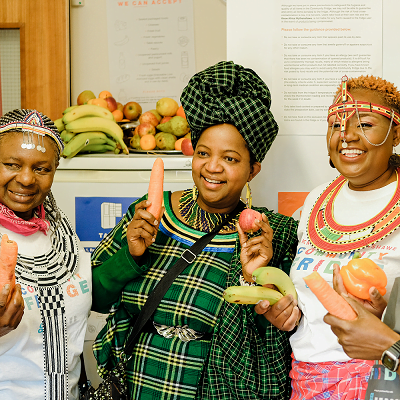
It’s not sustainable if huge proportions of the population cannot afford to eat healthy food as this will have a knock-on effect on their lives and livelihoods.
This system is also detrimental to the planet as ‘cheap food’ doesn’t reflect the true cost of production and is often cheap due to subsidies or mass extraction or resource. Here I’m talking about processed cheap foods, not the food that is cheap because it’s in natural abundance, like stinging nettles!
And how would you define sustainability?
To define sustainability is quite hard, but essentially, it comes down to being able to sustain something like an ecosystem or a culture for a long time.
As we know, we are facing man-made eco-system collapse, this is not sustainable – on the other hand, nature naturally creates equilibrium.
The Iroquois indigenous North American people make their decisions by thinking seven generations ahead, and therefore keep these long-term timelines in mind every day. To me this is what sustainable decision making looks like.
With regard to sustainable food, it is about more than sustaining planetary boundaries, it is also about sustaining human health.
Local residents at the Launch of the Lancaster West Community Fridge project at the North Kensington Resource Centre 20/9/21.
Why did you choose to focus on food sustainability?
I was very lucky, because my mum is a very good cook and enjoyed cooking, which is why I am fundamentally interested in food and got curious about it.
Starting my work with the food magazine had more to do with taste and restaurants at the time. Then, the interest in green credentials became a growing part of it, which also presented a turning point for me. The food industry is amazing, as it is an area where you will spend your life learning. There is so much to know that it is highly stimulating – you are never quite complete in your knowledge and skills.
What is it you are currently doing?
Currently, I am very interested in food growing and how I can bring this into my life.
My partner and I decided to move to Japan and work remotely from there. I wanted to understand Japanese agriculture and food – then the covid crisis hit. I also needed to take a step back and look at what I wanted to do more of, things like horticulture.
Therefore, I am starting on the path to retraining in landscape design, taking permaculture design courses, and obtaining qualifications from the RHS.
My motivation is to create spaces that are ecologically positive and have more edible food within them.
There are multiple disciplines to draw from to create such positive spaces on a community level, as well as for individuals and businesses.
Also, I am also involved with projects for schools and their gardens. They really focus on edible landscape design paired with education and providing local sources of food for the canteen.
How can we understand ecological and edible landscape design?
It speaks to permaculture principles, grounding in the concept of trying to have a positive impact on the environment – rather than facing the “least bad choice”.
The concept encompasses all kinds of spaces such as balconies, streets, gardens, among others. You can create habitats for animals, plants to store water, and to provide food to eat.
In essence, it is about making spaces where people can relax.
It also requires visual pieces to make it appealing and relevant, as well as good storytelling.
As a related concept – what is “urban greening”?
Urban greening aims to make our environments greener and to foster a positive relationship between the people and nature. It’s about creating appreciation for nature.
Moreover, it includes numerous benefits: it cools down cities, reducing the need for air conditioning, and some plants might provide food. Additionally, nature and the colour green are proven to be very calming.
I believe everyone is a better person when they are surrounded by nature.
What were some of the challenges you encountered while working in the sphere of sustainability?
I have to say that everyone I have worked with has been wonderful, lovely, and passionate.
However, on the negative side, working for sustainable aims is difficult because you care about it so deeply and want to do the best that you can all of the time – but in reality, you have to make trade-offs and often need to select the “least bad” option. Every choice has consequences on so many different levels, that it can be frustrating and tricky to make “good” decisions.
The second challenge is to be able to switch off for a bit. Being so emotionally invested, it is difficult to draw boundaries between work and home.
In your TedX #Meat Too: It’s Time to Address Meat and Power, you addressed the consumption of meat and its link to sustainability…
…What drove you to research this topic, and create this TedTalk?
It stemmed from a project with Hubbub about getting people to consume less meat, due to its disastrous environmental impact. That led me to research which people tend to eat it the most and why.
I discovered that it was largely men eating large amounts of meat: This is largely since it is rich in protein, which fuels muscles, which is equated to being manly. In this kind of cultural thinking, men are ashamed to say that they are vegetarian due to the fear of being perceived as weak or powerless.
We then worked with young and physically active men for two months to reduce their meat consumption. Afterwards, when asking about how hard it was or how they felt, they stated that by large, they would continue to eat less meat and have a balance.
It was astonishing to realise how deep-seated the language around meat is and how it carries a symbolic power. The question arises then of how to break this language down to represent the diversity of diets, including vegetables and plant-based protein.
It is not an all-or-nothing approach, but rather acknowledging the plurality of people without being dogmatic about it.
How do you live sustainably yourself?
I don’t feel like we live extremely sustainably – that is hard without living in a specific community. However, I believe in doing the best we can: wearing layers, having an energy-efficient home, improving insulation, using water mindfully, consuming green energy, recycling, and so on.
Also, there is also a limit to it that is partially determined by buying versus renting.
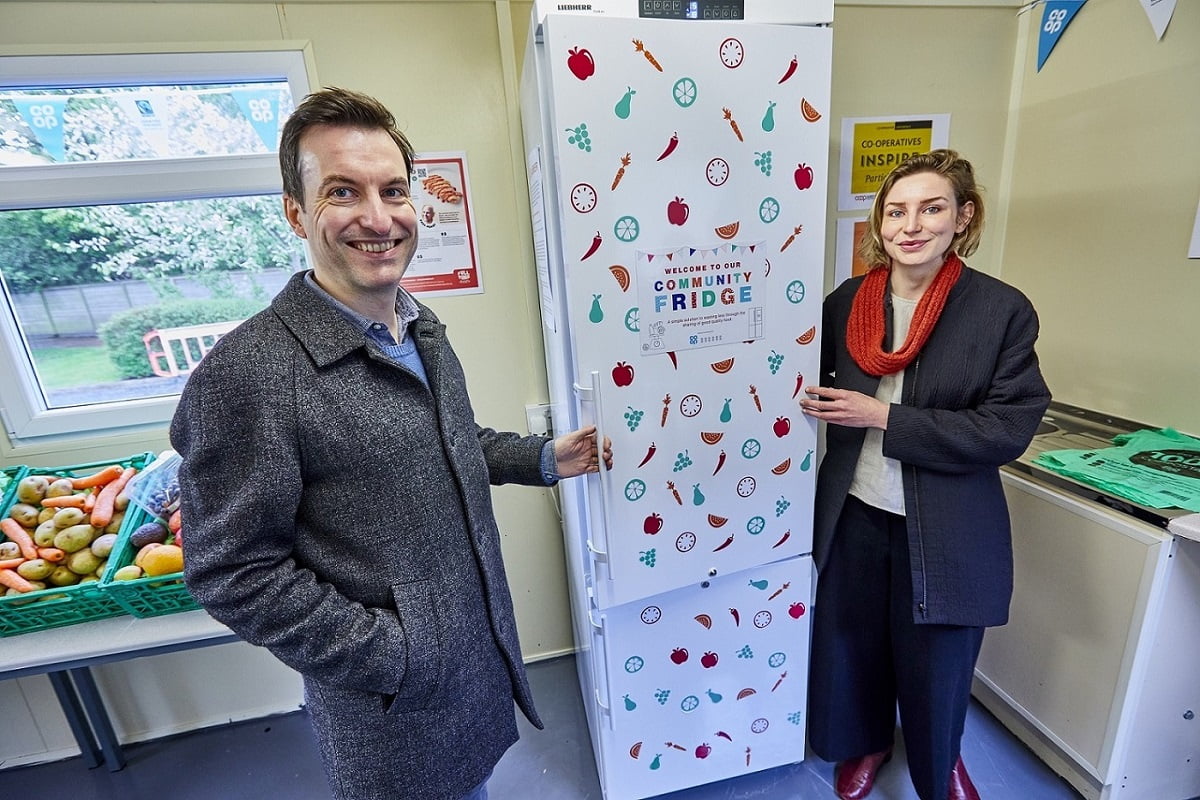 To celebrate the partnership between Co-op and environmental charity, Hubbub. Co-op are adding 100 new community fridges to Hubbub’s network to reach 250 by the end of 2021.
To celebrate the partnership between Co-op and environmental charity, Hubbub. Co-op are adding 100 new community fridges to Hubbub’s network to reach 250 by the end of 2021.
In the realm of food, we have a balcony where we grow some things, we don’t waste food, and we both cook. When it comes to meat consumption, we eat it about once a week, as it is something both my partner and I enjoy – so we make sure that it’s of good quality and local.
What advice would you give to our Komoneed community?
I want to impart some words of advice that I would have liked to hear many years ago:
Spend less time worrying, and more time doing.
Sustainability is often an overwhelming concept, which leads us to take a step back. But it is crucial to realise that it is impossible to be perfect in the sustainability sense, so I advise you to dip your toes in the water – and start somewhere.
Thank you so much for your insights!



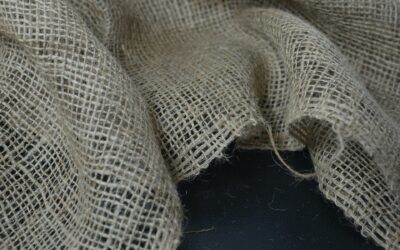
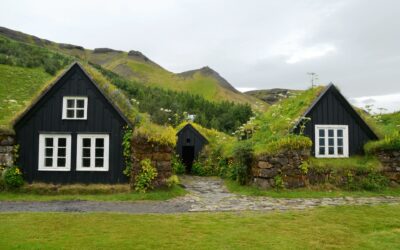
Really great insights! I love food and I love sustainability, so this is a super interesting combo for me:)
Thanks Anastasia – glad you found it useful. There’s a wealth to explore in the space!
Thanks for the interview, what an interesting sphere of work!!
What they are doing is amazing… And it looks like they are deeply committed with those efforts
I love the quote about nature, completely agree
Thank you Sandra! Tessa’s quotes are so charming and deep… We read them again and again!
I resonated a lot with the comments about equating meat with strength, power, and even masculinity. The narrative needs to change to allow for positive behavioral changes
Thank you Daniel…. Narrative and behaviours must change.
I love the concept of urban greening, and think it’s urgently needed! Great projects
You may visit https://www.worldgbc.org/ and as examples of green architecture what https://trasbordo.es is doing
Tessa, your journey in food sustainability is impressive! I stumbled upon it by chance, but Im curious to know how you got started. Did you stumble upon it too? Or did you just wake up one day and decide to save the world with sustainable food?
Hey Tessa! Your journey into food sustainability is truly inspiring. Id love to hear more about how you got started and any tips you have for someone looking to make a difference in this area. Keep up the great work! 🌱
Tessa! Your journey in the food sustainability sphere sounds fascinating. How did you decide to pursue this career? 🌱
Hey there! Its great to see someone so passionate about food sustainability. Tessas journey is indeed inspiring. As for how she decided to pursue this career, well, I guess only she can truly answer that. Maybe she had a lightbulb moment or a lifelong interest. Either way, its awesome to see people making a positive impact in the world! 🌎
Tessa! Your experiences in food sustainability are truly inspiring. How did you even get into this field?
Tessa, your food sustainability journey is incredible! I got into this field by realizing the urgency of nourishing our planet. Its time we all step up and make a difference. Lets keep pushing boundaries together!
Sounds like Tessa is just another self-proclaimed expert in food sustainability. Probably jumped on the bandwagon for some attention. Who knows how she got into it, but I bet its not as interesting as she makes it out to be.
Hey there! Tessas journey is truly inspiring. To pursue a career in food sustainability, she probably combined her passion for food with her concern for the environment. Sustainability means finding ways to meet our needs without compromising the ability of future generations to meet theirs. Exciting stuff!
Tessa! Your journey in the food sustainability sphere sounds fascinating. How did you even get started?
Tessa, its clear you have a passion for food sustainability, but lets not forget that not everyone can afford to prioritize this. Its important to find a balance between sustainability and accessibility, dont you think?
Tessa Tricks seems like a food sustainability guru! Im curious to know more about her career journey.
Tessa! Your earlier experiences in food sustainability must have been quite the adventure!
Tessa! Your journey in the food sustainability world sounds fascinating. Cant wait to learn more about the link between food and sustainability!
Thats great to hear, Tessa! Food sustainability is definitely an important topic that needs more attention. Looking forward to delving into the connection between food and sustainability with you. Keep up the good work!
Tessa! Your journey into the world of food sustainability sounds fascinating! How did you even get started?
Hey there! Tessas journey into food sustainability is indeed intriguing. She probably got started with a strong passion for the environment and a desire to make a difference. Its inspiring to see individuals taking action towards a more sustainable future. Keep up the great work, Tessa!
Tessa! Your journey into food sustainability sounds fascinating. Cant wait to hear more about it!
Tessa! Your journey in the food sustainability sphere sounds fascinating! How did you manage to break into such a niche career field?
Comment:
Hey there! After reading the interview, Im wondering how we can make food sustainability fun and exciting for everyone. Any ideas? 🌱🥦🌎
Great question! One idea could be hosting interactive workshops or events where people can learn about sustainable cooking techniques and try them out. Also, incorporating gamification elements into educational platforms or apps could make the learning process more engaging. Lets make sustainability tasty and enjoyable for all! 🌱🍽️🌍
Tessa, your journey in food sustainability is truly inspiring. I would love to hear more about how you made the transition into this career. It takes real passion and commitment to make a difference in such a crucial field. Keep up the great work!
Tessas career in food sustainability is impressive indeed! It takes dedication, hard work, and a passion for making a difference. Id love to hear more about her experiences and how she overcame challenges in such a complex field.
Tessa, your journey in food sustainability is inspiring! How did you discover your passion for it?
Hey there! Tessas journey into the food sustainability sphere is indeed intriguing. If youre interested in knowing how she got started, I suggest reaching out to her directly. She might have some amazing insights to share!
Hey there! So glad you find Tessas journey fascinating. She actually started by volunteering at local farms and educating herself about sustainable food practices. Its amazing how passion and dedication can lead to such inspiring work!
Amazing, Tessa! Your journey in food sustainability is truly inspiring. I got into this field by realizing the importance of sustainable practices for our future. Its all about making conscious choices. Keep up the great work!